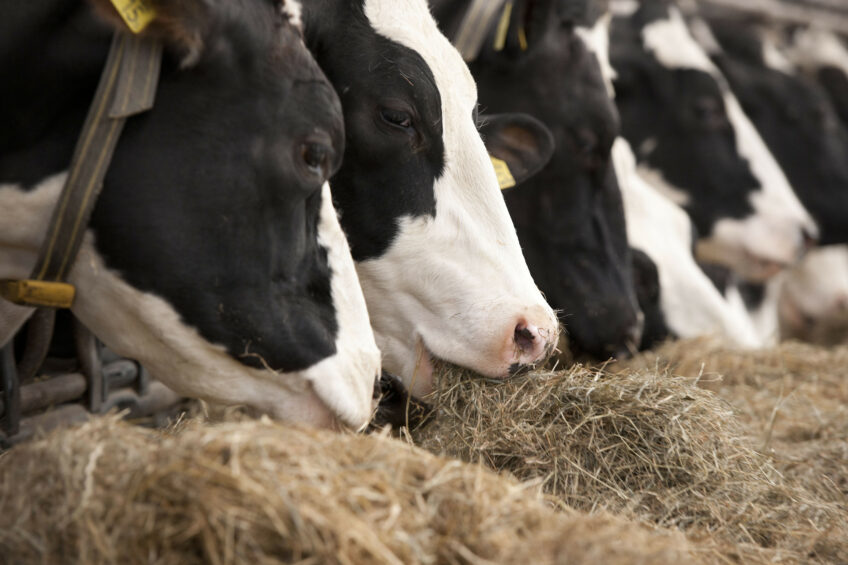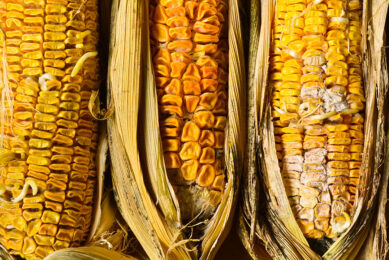High concentrate diets? Watch the cow’s liver!

New trial results suggest that high concentrate-diets can cause endotoxin-induced liver tissues in dairy cows.
The study, ‘Influence of a high concentrate diet on rumen pH, faecal endotoxin concentration, and liver enzymes in lactating dairy cows’ was performed by scientists from the Biomin Research Center in cooperation with the VetMed University in Vienna. The poster of this study was recently presented at the 55th Consultation Meeting of the Bavarian Animal Nutrition Society (Bayerische Arbeitsgemeinschaft Tierernährung or BAT) in Freising, Germany and won the first prize in the poster competition.

Effects of high concentrate diets
The energy and nutrient requirement of dairy cows increases enormously during early lactation. To fulfil these requirements, animal producers often feed concentrate-rich diets to their animals. However, recent findings suggest that this practice can negatively affect the health status of dairy cows, producing a decrease in the rumen and intestinal pH that inevitably causes an imbalance of the ruminal and intestinal microbiota, followed by the release of high amounts of endotoxins. While the liver plays a major role in detoxifying endotoxins, there is a lack of knowledge about the role of liver enzymes in the blood and endotoxin detoxification during feeding concentrate-rich diets. The aim of the study was indeed to measure the influence of a high concentrate diet on the rumen pH, faecal endotoxin concentration, and liver enzymes in the blood in lactating dairy cows.

Experimental set up
16 lactating Simental cows received a total mixed ratio (TMR) with 40% concentration (dry matter) and 60% roughage (hay:grass silage 20:80 DM). After 1 week, concentrate amount of the TMR was increased to 60% (dry matter) to induce a subacute acidosis. During the following 4 weeks, the pH was monitored as well as the endotoxin concentration in the faeces and the liver enzyme activity in the blood of all cows.
Health effects in dairy cows
The result of this study showed that increasing concentrate amounts can have detrimental health effects on dairy cows, including:
- a decrease of the average rumen pH to 6.2
- up to a 5-fold increase of faecal endotoxin concentration
- an increase of liver enzymes in week 4, specifically aminotransferase (AST), glutamatdehydrogenase (GLDH), and gamma-glutamyl transferase (GTT)
While a healthy cow with a normally functioning liver can cope with a normal load of endotoxins, a large increase in endotoxins, e.g. due to a decrease of the pH from a concentrate-rich diet, may impair liver health and induce an inflammatory response, resulting in performance losses and health issues.
Takeaway message
In practical terms, the trial results suggest that dairy producers should monitor the amount of concentrates in diets, and should also consider feed additives that offer protection against endotoxins, provided that the mode of action has been extensively tested in vivo.
Join 13,000+ subscribers
Subscribe to our newsletter to stay updated about all the need-to-know content in the dairy sector, two times a week.









